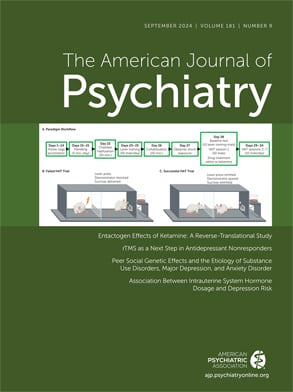Frederick (not his real name, of course) always seemed to notice the little things. One day, for example, he reported that the lock was broken on the gate to the doctors’ parking lot. He wanted me to be sure to tell the hospital administrator to get it fixed. I assumed that the administrator already knew about it and didn’t see the issue as being top priority, but I agreed to Frederick’s request to pass the information on because I knew that little things could bother him and could contribute to his missing the big picture—some might call this missing the forest for the trees. (Indeed, narrowly focused on one or two trees, Frederick could sometimes experience himself in an entirely different forest from the one that everyone else saw.)
At his next appointment, Frederick quietly expressed dismay over the lock still being broken. “How,” he asked me, “can I trust the repair of a complex thing, like my broken brain, to a hospital that is unable to fix a simple thing like a broken lock?” He had a point. Not your “usual logic,” to be sure, but a point nonetheless. And I realized that, if I didn’t recognize that point, I would never be able to appreciate the forest in which Frederick wandered.
Frederick’s attention to detail could also play out maladaptively on a larger stage. One night I received a call from him at 3:00 a.m. “I’m sorry to call you at such an hour, Dr. Siris,” he began, “but my father is in grave danger and no one will listen to me.” He went on to describe how his father had experienced chest pain at 10:00 p.m. and was raced by ambulance to a nearby hospital. Frederick had been at the hospital with his mother and sister as his 80-year-old father was admitted to the intensive care unit. Throughout the night they had been ushered in and out of the room as tests were done, intravenous lines placed, and examinations made. “How is your father doing now?” I asked. “Oh, the pain is completely gone. Dad’s joking about it now, and the doctor says it wasn’t a heart attack. They just want to keep him overnight for observation. Nobody but me recognizes the danger he is in.”
“What danger is that?”
“Well, one time when we were asked to step out so Dad could have a test, I noticed that the inspection sticker on the fire extinguisher in the hall was good only through the end of the month. But, as you know, tonight at midnight a new month started. Hospital fires can be deadly—I remember seeing a tragic news report a few years ago. And Dad is lying there, all tied down with intravenous tubing, and with oxygen running besides. It’s a very dangerous situation. I keep trying to tell people, but the doctor only turns and walks away, and the nurses just say, ‘Don’t worry about it.’ I even called the hospital administrator. He listened politely, but said he couldn’t do anything until 8:00 a.m.—and that’s 5 hours from now. So please, will you speak to the doctor and get my father transferred to another hospital where he can be safe?”
I tried to “talk sense” to Frederick. I tried to explain that it was just an inspection sticker on the extinguisher that had expired, not the extinguisher itself. I tried to explain that the chances of a fire were extremely remote, and certainly posed less danger than an ambulance ride to another hospital to be seen by a new doctor in a different intensive care unit. Nothing I said seemed to quiet Frederick’s concerns. To him, his father was in danger, and he was in “emergency mode” to protect him. We spoke for 20 minutes, yet all Frederick did was continue his calmly spoken but urgently felt plea to me. I was at my wits’ end. What else could I say? Then, from somewhere, it occurred to me to respond, “Frederick, you have faithfully discharged your duty by telling me this. If anything bad happens to your father because of that fire extinguisher, it is my responsibility now.”
“Thank you. Good night,” he replied, and hung up the phone.
I didn’t know where the inspiration came from, that my assuming responsibility would resolve the situation. Frederick’s fears concerning his father’s potential mortality and his wish that he could be the one to do something helpful were easy to understand. But it was only after the fact that I realized that the core of Frederick’s terror was finding himself unable to pass the “hot potato” of responsibility for his father’s well-being. That wasn’t the way other people saw the situation, of course. But maybe my willingness to walk, at least momentarily, in Frederick’s forest helped us both that night, and experiencing how his forest was constructed had helped me guess which detail of it was so disturbing to him.

